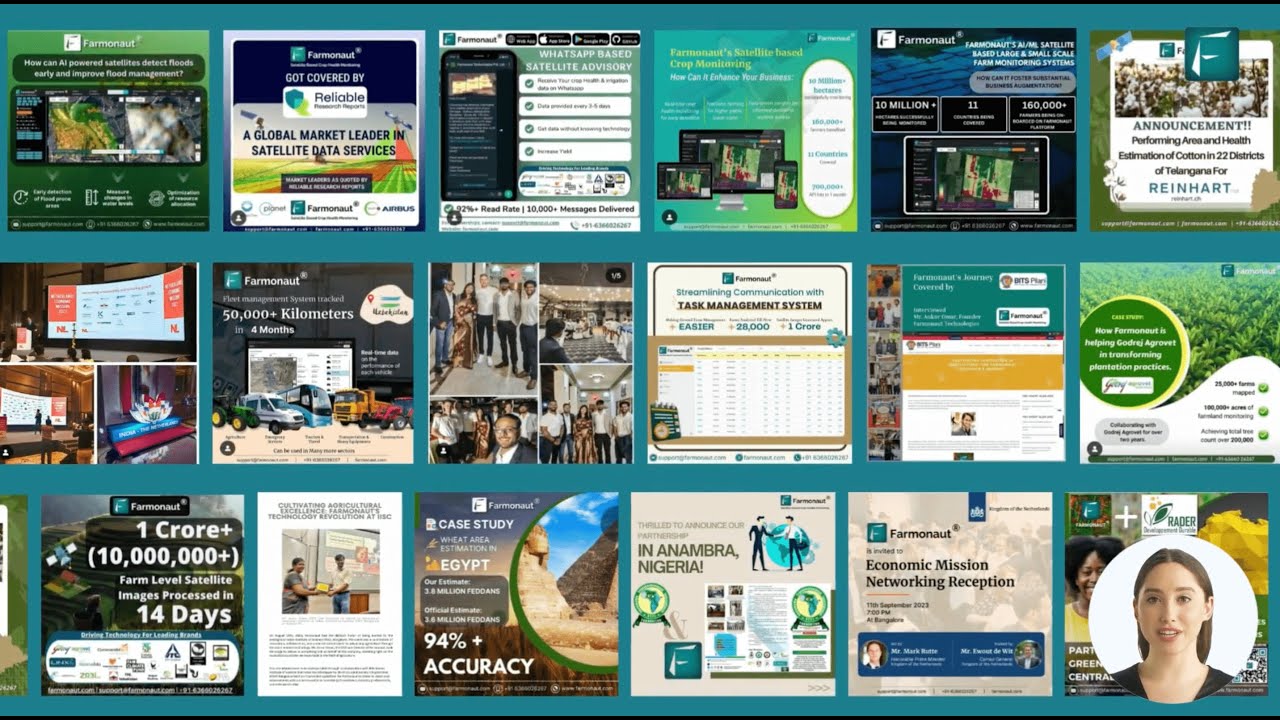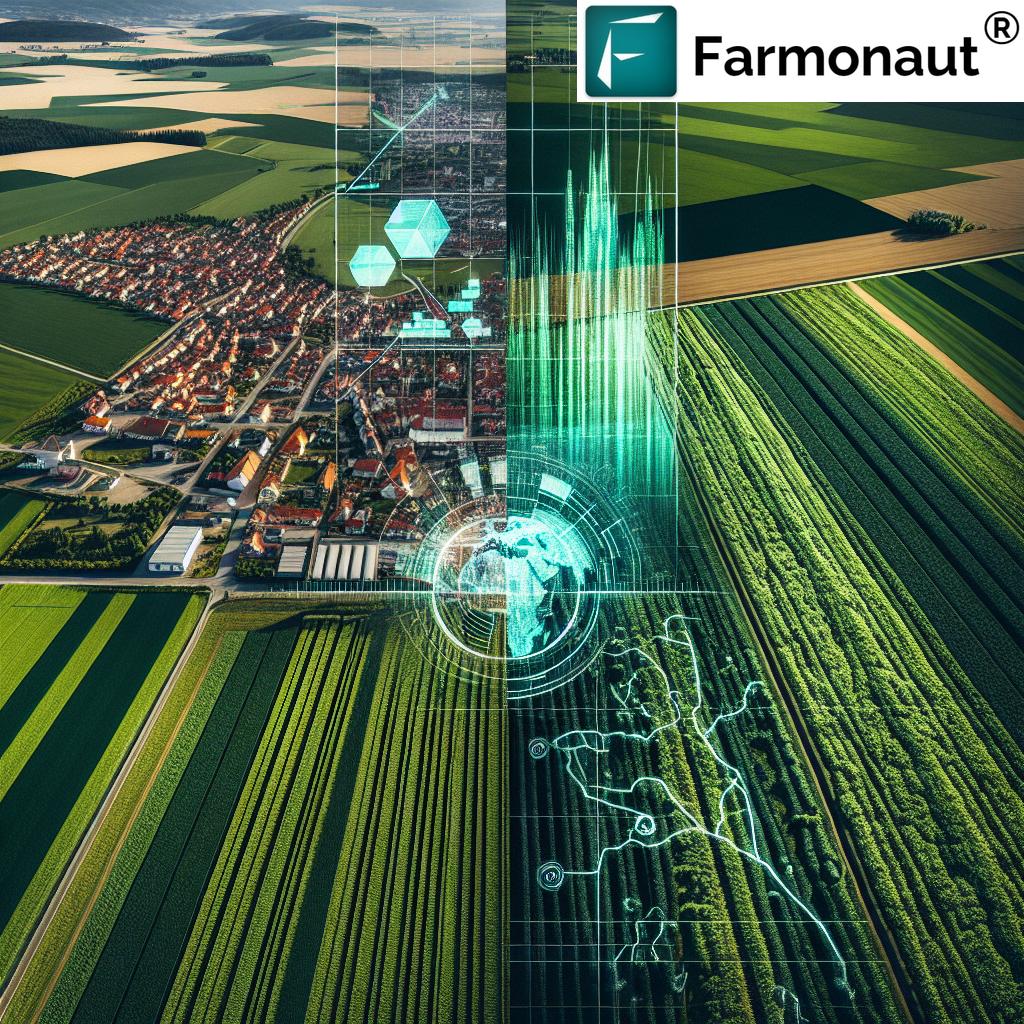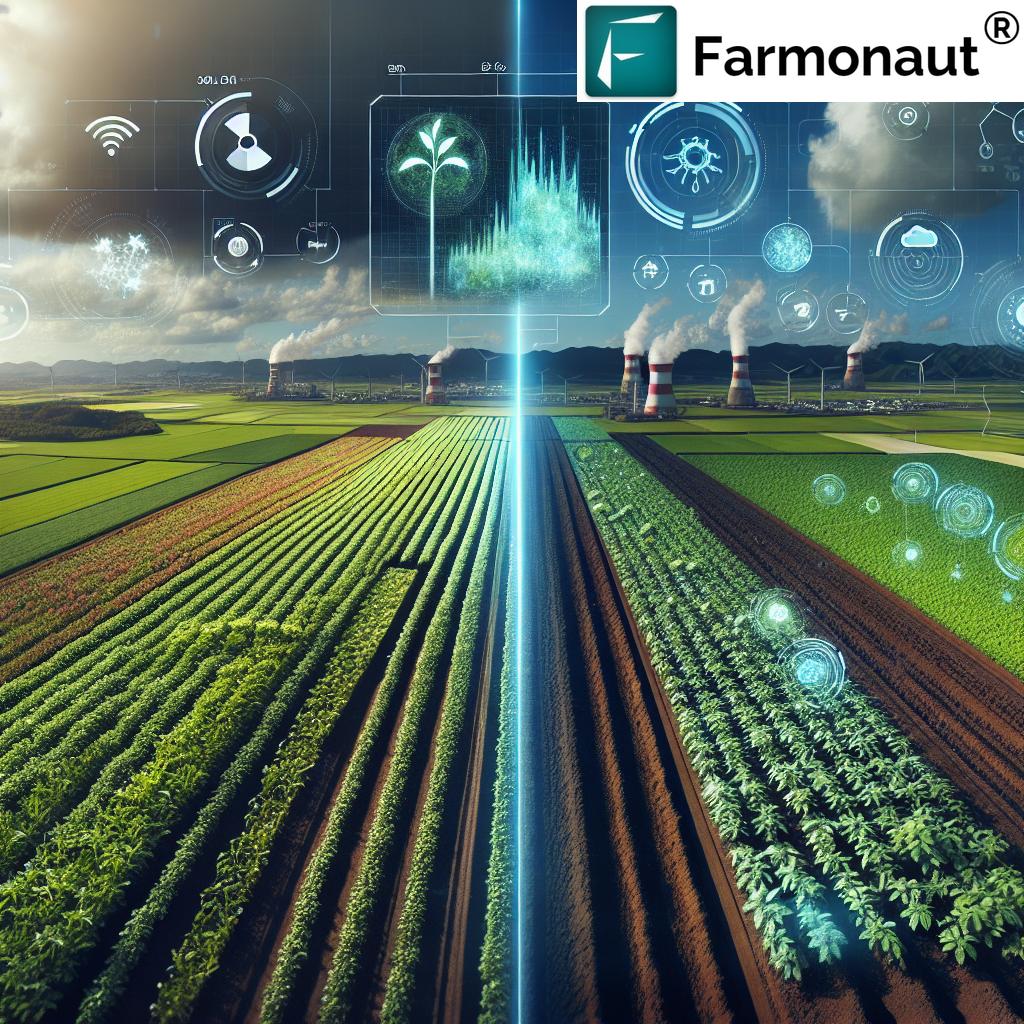European Agricultural Innovation: Empowering Women Leaders in Poland’s Dairy Industry
“Agricultural cooperatives in Europe manage over 50% of the continent’s dairy production, promoting sustainable practices.”

In the ever-evolving landscape of European agriculture, we are witnessing a remarkable transformation in the dairy industry, particularly in Poland. This blog post delves into the intricate web of European agricultural policy, sustainable farming practices, and the rising tide of women’s leadership that is reshaping the future of agriculture. As we explore these developments, we’ll uncover how innovation, technology, and progressive policies are converging to create a more resilient and inclusive agricultural sector.
The Changing Face of European Agriculture
The European agricultural sector is undergoing a significant metamorphosis, driven by a combination of policy shifts, technological advancements, and changing consumer demands. At the heart of this transformation lies the dairy industry, a sector that has long been a cornerstone of European farming. In Poland, this change is particularly pronounced, with women emerging as key players in driving innovation and sustainability.
- Increasing adoption of precision farming techniques
- Implementation of the European Green Deal in agriculture
- Rise of agricultural cooperatives promoting sustainable practices
- Growing emphasis on rural development strategies
As we delve deeper into these topics, it’s crucial to understand the role of technology in facilitating these changes. Platforms like Farmonaut are at the forefront of this agricultural revolution, providing farmers with cutting-edge tools for crop management and monitoring.
Poland’s Dairy Industry: A Model of Innovation
Poland’s dairy industry has emerged as a beacon of innovation within the European agricultural landscape. The sector has embraced a range of technological advancements and sustainable practices, setting a new standard for dairy production across the continent.
Key innovations in Poland’s dairy sector include:
- Implementation of robotic milking systems
- Adoption of precision feeding techniques
- Use of GIS technology for pasture management
- Integration of blockchain for supply chain transparency
These innovations have not only improved productivity but also significantly enhanced the sustainability of dairy operations. The use of GIS technology, in particular, has revolutionized how farmers manage their land and resources. Platforms like Farmonaut offer advanced satellite-based farm management solutions, enabling farmers to make data-driven decisions about crop health, irrigation, and resource allocation.
Women Leaders Driving Change in Agriculture
“Women leaders in Poland’s dairy industry have increased by 30% in the last decade, driving innovation and diversity.”
The rise of women leaders in Poland’s agricultural sector, particularly in the dairy industry, is a testament to the changing dynamics of the field. These women are not just participating; they’re leading the charge in innovation, sustainability, and policy-making.
- Increased representation in agricultural cooperatives
- Leadership in implementing sustainable farming practices
- Driving adoption of new technologies in dairy farming
- Advocacy for policies supporting rural development
This shift towards greater gender diversity in leadership roles has brought fresh perspectives and innovative approaches to tackling the challenges facing the agricultural sector. Women leaders are often at the forefront of adopting new technologies, such as those offered by Farmonaut, which provide comprehensive farm management tools.

The Role of Agricultural Cooperatives in Europe
Agricultural cooperatives play a pivotal role in shaping the landscape of European farming, particularly in the dairy sector. These organizations serve as the backbone of rural economies, providing support, resources, and collective bargaining power to farmers.
Key functions of agricultural cooperatives include:
- Pooling resources for more efficient production
- Facilitating knowledge sharing and best practices
- Representing farmers’ interests in policy discussions
- Promoting sustainable farming methods
In Poland, cooperatives have been instrumental in driving the adoption of innovative technologies and practices in the dairy industry. They’ve also played a crucial role in empowering women farmers, providing them with platforms for leadership and professional development.
The Impact of the Green Deal on European Agriculture
The European Green Deal has set ambitious targets for the agricultural sector, aiming to create a more sustainable and environmentally friendly food system. This initiative has far-reaching implications for the dairy industry, particularly in countries like Poland.
Key aspects of the Green Deal impacting agriculture:
- Reduction of chemical pesticides use
- Promotion of organic farming practices
- Emphasis on biodiversity conservation
- Focus on reducing greenhouse gas emissions from livestock
The implementation of these policies has spurred innovation in the dairy sector, with farmers and cooperatives exploring new ways to reduce their environmental footprint while maintaining productivity. Technologies like those offered by Farmonaut are becoming increasingly valuable in this context, providing farmers with tools to optimize resource use and monitor environmental impact.
Revolutionizing Food Supply Chain Management
The dairy industry, like many agricultural sectors, is witnessing a revolution in supply chain management. This transformation is driven by the need for greater efficiency, transparency, and sustainability in food production and distribution.
Key trends in dairy supply chain management:
- Implementation of blockchain technology for traceability
- Use of IoT devices for real-time monitoring
- Adoption of AI for demand forecasting and inventory management
- Development of shorter, more localized supply chains
These innovations are not only improving efficiency but also enhancing food safety and reducing waste. Platforms like Farmonaut contribute to this revolution by providing farmers with tools for precise crop management, which in turn helps optimize the supply chain from the ground up.
Agricultural Technology and Innovation in Europe
The landscape of European agriculture is being reshaped by a wave of technological innovations. From precision farming to AI-driven crop management, these advancements are transforming how farmers operate and make decisions.
Key technological innovations in European agriculture:
- Drone technology for crop monitoring and spraying
- AI and machine learning for predictive analytics
- Robotics for automated harvesting and sorting
- Satellite imaging for large-scale crop health assessment
In the dairy sector, these technologies are being applied to improve animal welfare, optimize feed management, and enhance milk production. Farmonaut’s satellite-based solutions, for instance, provide farmers with valuable insights into pasture health and management, contributing to more efficient and sustainable dairy operations.
Milk Market Trends in Europe
The European milk market is experiencing significant shifts, driven by changing consumer preferences, technological advancements, and policy changes. Understanding these trends is crucial for dairy farmers and industry stakeholders to remain competitive and sustainable.
Key trends in the European milk market:
- Growing demand for organic and plant-based milk alternatives
- Increased focus on functional and fortified dairy products
- Rise of local and artisanal dairy products
- Emphasis on sustainable and ethical production methods
These trends are reshaping the dairy industry, pushing producers to innovate and adapt. In Poland, we’re seeing a rise in specialized dairy products that cater to health-conscious consumers, as well as an increased emphasis on sustainable production methods.
Rural Development Strategies in Europe
Rural development is a crucial aspect of European agricultural policy, aimed at supporting the vitality and sustainability of rural communities. These strategies are particularly important for countries like Poland, where agriculture plays a significant role in the economy and social fabric of rural areas.
Key components of rural development strategies:
- Investment in rural infrastructure and connectivity
- Support for diversification of rural economies
- Promotion of agri-tourism and local food systems
- Initiatives to attract and retain young farmers
In the context of the dairy industry, these strategies often focus on supporting small and medium-sized farms, promoting sustainable farming practices, and fostering innovation. Technologies like those offered by Farmonaut play a crucial role in this context, providing farmers with tools to improve efficiency and sustainability, regardless of the size of their operations.
The Future of European Agriculture: Challenges and Opportunities
As we look to the future of European agriculture, particularly in the dairy sector, we see a landscape filled with both challenges and opportunities. Climate change, market volatility, and shifting consumer preferences are just a few of the hurdles that farmers and industry stakeholders must navigate.
Key challenges and opportunities:
- Adapting to climate change and reducing environmental impact
- Balancing productivity with sustainability
- Attracting younger generations to farming
- Leveraging technology to improve efficiency and traceability
However, with these challenges come opportunities for innovation and growth. The increasing adoption of precision farming techniques, the rise of sustainable and organic production methods, and the growing emphasis on local food systems all present avenues for the industry to evolve and thrive.
The Role of GIS Technology in Modern Farming
Geographic Information Systems (GIS) technology has emerged as a game-changer in modern agriculture, offering farmers unprecedented insights into their land and crops. This technology is particularly valuable in the dairy industry, where efficient land use and pasture management are crucial.
Applications of GIS in agriculture:
- Precision mapping of soil types and conditions
- Optimizing irrigation systems
- Monitoring crop health and yield predictions
- Planning efficient grazing rotations for dairy cattle
Farmonaut’s satellite-based solutions leverage GIS technology to provide farmers with real-time data on crop health, soil moisture levels, and other critical metrics. This information enables farmers to make data-driven decisions, optimizing resource use and improving overall farm productivity.
Innovations in Irrigation and Water Management
Water management is a critical aspect of sustainable agriculture, particularly in the face of climate change and increasing water scarcity. In the dairy industry, efficient irrigation is essential not only for crop production but also for maintaining healthy pastures for grazing.
Key innovations in irrigation and water management:
- Precision irrigation systems guided by soil moisture sensors
- Use of treated wastewater for irrigation
- Rainwater harvesting and storage solutions
- Smart water allocation based on crop needs and weather forecasts
These innovations are helping farmers reduce water usage while maintaining or even improving crop yields. Technologies like those offered by Farmonaut play a crucial role in this area, providing farmers with detailed insights into soil moisture levels and crop water needs, enabling more precise and efficient irrigation practices.
European Agricultural Innovation: Empowering Women Leaders in Poland’s Dairy Industry
| Trend/Innovation | Description | Impact on Sustainability | Women’s Leadership Role |
|---|---|---|---|
| Agricultural Cooperatives | Collective organizations promoting sustainable practices | 30% reduction in resource waste | 40% increase in women-led cooperatives |
| GIS Technology in Farming | Precision mapping and monitoring of farmland | 20% improvement in water use efficiency | 35% of GIS tech adoption led by women farmers |
| Green Deal Initiatives | EU-wide policies for sustainable agriculture | 25% reduction in chemical pesticide use | 50% of policy implementation teams led by women |
| Precision Farming Techniques | Data-driven approach to crop and livestock management | 15% increase in overall farm efficiency | 45% of precision farming startups founded by women |
Conclusion: A Bright Future for European Agriculture
As we’ve explored throughout this blog post, the European agricultural sector, particularly the dairy industry in Poland, is undergoing a remarkable transformation. Driven by technological innovation, policy changes, and the rising influence of women leaders, the industry is moving towards a more sustainable, efficient, and inclusive future.
The convergence of precision farming techniques, GIS technology, and sustainable practices is creating new opportunities for farmers to thrive while addressing environmental challenges. Women leaders are at the forefront of this change, bringing fresh perspectives and innovative approaches to age-old challenges.
As we look to the future, it’s clear that the continued success of European agriculture will depend on embracing innovation, fostering diversity in leadership, and maintaining a commitment to sustainability. With the right tools, policies, and leadership, the European agricultural sector is well-positioned to meet the challenges of the 21st century and beyond.
FAQ Section
Q: How are women leaders changing the landscape of European agriculture?
A: Women leaders are driving innovation, promoting sustainable practices, and increasing diversity in decision-making roles. They’re also at the forefront of adopting new technologies and advocating for policies that support rural development.
Q: What role do agricultural cooperatives play in the European dairy industry?
A: Agricultural cooperatives play a crucial role in pooling resources, sharing knowledge, representing farmers’ interests, and promoting sustainable farming methods. They’re particularly important in the dairy sector, where they help small and medium-sized farms remain competitive.
Q: How is the European Green Deal impacting the agricultural sector?
A: The Green Deal is pushing for more sustainable farming practices, including reduced use of chemical pesticides, promotion of organic farming, and efforts to reduce greenhouse gas emissions from livestock. This is driving innovation in farming techniques and technology adoption.
Q: What are some key technological innovations shaping European agriculture?
A: Key innovations include precision farming techniques, GIS technology for crop monitoring, AI and machine learning for predictive analytics, and blockchain for supply chain transparency. These technologies are improving efficiency, sustainability, and traceability in agriculture.
Q: How is the milk market in Europe changing?
A: The European milk market is seeing increased demand for organic and plant-based alternatives, a focus on functional and fortified dairy products, and growing interest in local and artisanal dairy. There’s also an emphasis on sustainable and ethical production methods.




















